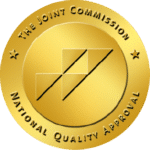The intersection of psychedelics, mental health, and neuroscience is a dynamic and exciting field. Recent research has demonstrated the potential of substances such as LSD, psilocybin, and ayahuasca to alleviate symptoms of anxiety, depression, and even schizophrenia. Reputable institutions like the New York Academy of Science have dedicated entire publications to the subject in recent years—and this research is just getting started. The future for psychedelic-assisted therapy for mental health is bright. Read on for a brief overview of current research into psychedelic drugs and mental health, as well as what lies ahead for this rapidly expanding field.
Overview of Psychedelics and Mental Health
Psychedelics have a wide range of mental health applications. They have been shown to be useful in the treatment of: – Mood disorders – Anxiety disorders – OCD – Psychosis The popularity of psychedelics as a therapeutic tool has waxed and waned over the years. Today, there is a growing body of research into the therapeutic potential of psychedelics, including LSD, psilocybin, and ayahuasca. This research suggests psychedelics may help treat a wide range of mental health disorders, particularly anxiety and depression.
How do psychedelics work?
There is still a lot of research to be done on psychedelics and how they may help with mental health disorders. But we do know a bit about how they work. With that in mind, it’s important to note that psychedelic drugs work very differently in different people. There is no one-size-fits-all approach to psychedelics. There are several theories on how psychedelics work: – The serotonin theory – This theory suggests psychedelics change the way serotonin, a neurotransmitter, is regulated in the brain. Serotonin plays a role in mood and anxiety. – The neural network theory – This theory holds that psychedelics cause the brain to reorganize neural networks, making new connections and breaking old ones. This may help people who struggle with emotional regulation. – The ego dissolution theory – This theory suggests psychedelics cause a breakdown of the ego, resulting in feelings of connection with others, nature, and the universe. This approach may help people who struggle with feelings of isolation.
Depression
There is a growing body of research that shows psychedelics may be helpful in the treatment of depression. A 2017 study found psilocybin, the psychedelic compound in magic mushrooms, reduced depressive symptoms in subjects with treatment-resistant depression. Researchers have also found a link between the use of psychedelics and reduced mental health disorders, including depression, anxiety, and bipolar disorder. This suggests certain psychedelics, such as psilocybin, may have long-term psychological benefits that last beyond the effects of the drug itself.
Anxiety
Many of the same researchers who have studied psychedelics for treating depression have also explored their potential for reducing anxiety. The results look promising. A 2018 study found participants who received a psychedelic drug treatment had reduced anxiety and cravings for narcotics six months after taking the drug. Another study found that psilocybin helped people with generalized anxiety disorder by reducing symptoms of anxiety and increasing feelings of positivity.
OCD and Psychosis
One of the most interesting applications of psychedelics in mental health involves the treatment of obsessive-compulsive disorder (OCD) and schizophrenia. Scientists have observed that the psychedelic drug psilocybin may reduce symptoms of OCD by enabling the brain to “reset” itself. They’ve also seen that psilocybin may help people with schizophrenia by reducing symptoms like hallucinations, delusions, and negative feelings.
Conclusion
The intersection of psychedelics and mental health is robust and rapidly expanding. Recent research has demonstrated the potential of substances such as LSD, psilocybin, and ayahuasca to alleviate symptoms of anxiety, depression, and even schizophrenia. This research is just getting started, and the future for psychedelic-assisted therapy for mental health is bright. Now is the time to explore the intersection between psychedelics and mental health. There is still a lot of research to be done on psychedelics and how they may help with mental health disorders. But we do know a bit about how they work. The serotonin theory, neural network theory, and ego dissolution theory are just a few of the many theories on how psychedelics work.









